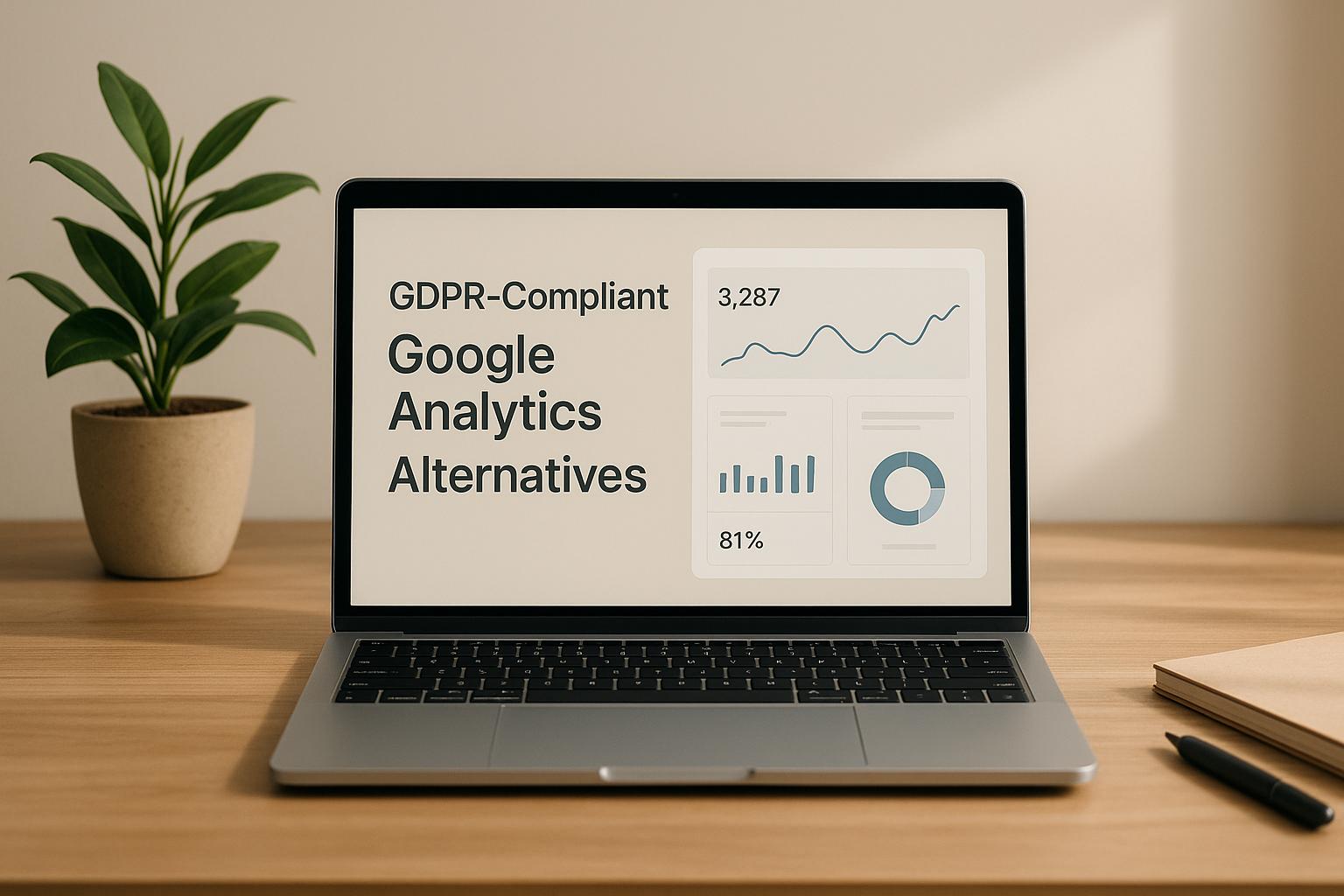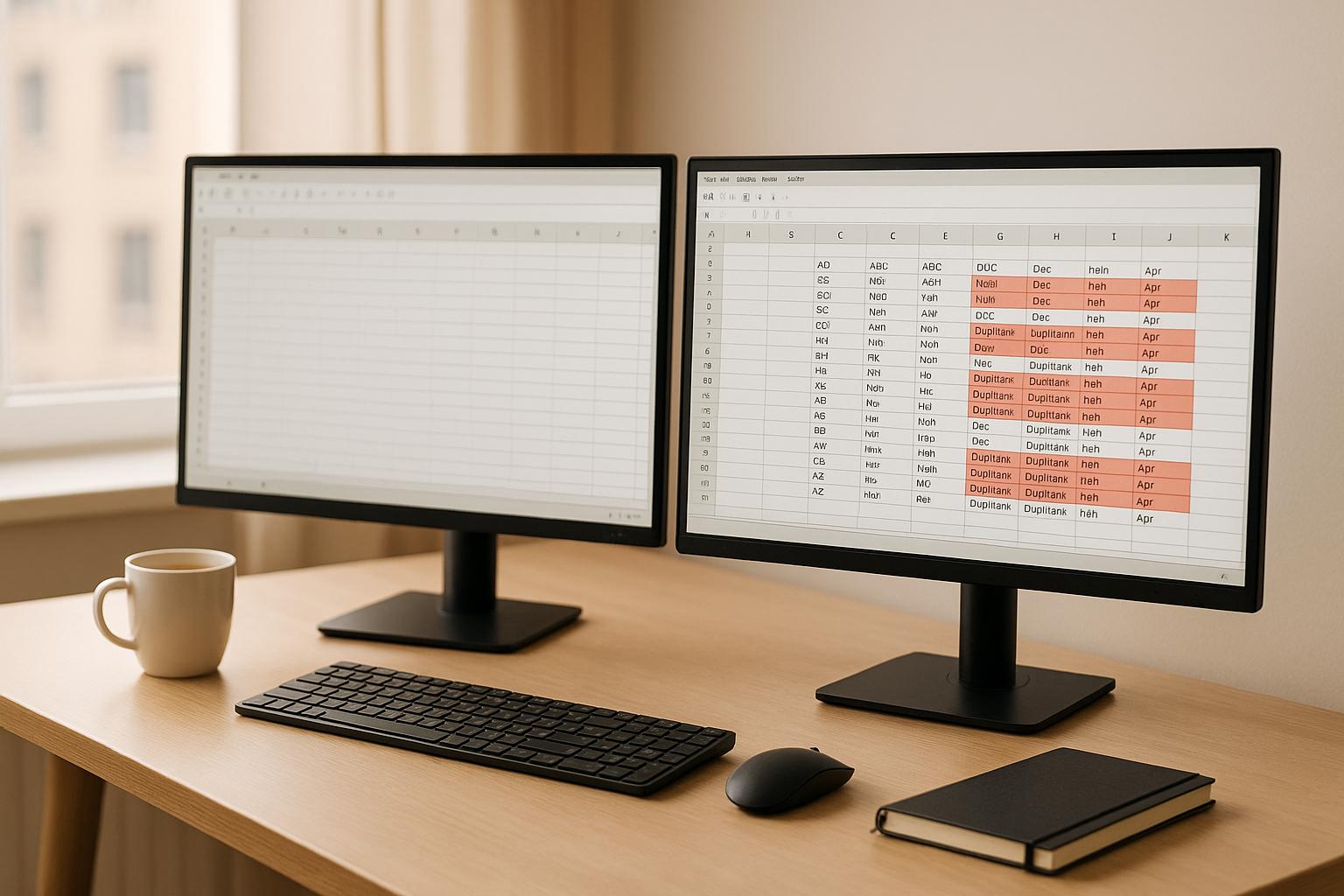Real-time data visualization helps marketers turn raw data into actionable insights instantly. By using tools like dynamic dashboards and interactive charts, you can monitor campaigns, analyze audiences, track social media, and improve website performance in real time. Here's what it enables:
- Campaign Monitoring: Track CTR, conversions, and ROAS instantly, make quick updates, and view multi-channel performance in one place.
- Audience Analysis: Segment audiences live, track behavior, and personalize content automatically.
- Social Media Insights: Analyze brand mentions, trending hashtags, and engagement opportunities on the go.
- Website Analytics: Monitor visitor behavior, optimize conversion paths, and test changes in real time.
For example, Spotify improved email deliverability by 34% and added $2.3M in revenue by using real-time tools to clean their subscriber database and implement live email verification. Marketers can achieve similar results by adopting real-time tools for smarter, faster decision-making.
Real-Time Live Finance/Marketing/Data Science Dashboard ...
Campaign Performance Tracking
Real-time visualization has transformed how campaigns are monitored. With dynamic dashboards and interactive charts, marketers can spot trends and make quick, data-driven decisions.
Key Metrics Monitoring
Marketers can keep an eye on critical metrics like CTR, conversion rates, and ROAS as they happen. This instant feedback helps identify both opportunities and problems before they have a chance to affect the campaign's overall success.
Quick Campaign Updates
Access to immediate performance data allows for fast adjustments, such as reallocating budgets, tweaking targeting, or updating creatives. These quick changes can keep campaigns on track and performing well.
Multi-Channel Performance Views
Bringing together data from multiple channels into a single view provides a clear picture of the entire customer journey. These unified insights show how channels work together and influence one another, helping marketers allocate resources more effectively. Tools like the Marketing Analytics Tools Directory make it easier to track and analyze multi-channel data in real time, paving the way for a deeper understanding of audience behavior.
Audience Analysis and Segmentation
Using insights from campaign tracking, audience analysis focuses on segmenting groups based on real-time data. Advanced analytics tools now transform raw data into actionable insights instantly, making it possible to target audiences based on their live behavior.
Live Behavior Tracking
Tracking real-time behavior helps uncover how audiences interact with your content and campaigns. For example, during busy shopping periods, you can monitor interest in specific product categories and adjust promotions on the fly.
Tools like visual heat maps and interaction flows provide a clear picture of where visitors focus their attention and which content resonates most. This level of detail helps improve user experience and refine content placement for better results.
Auto-Updated Segments
Dynamic segmentation automatically groups audiences based on their latest actions and traits. These segments update themselves in real time, ensuring your marketing consistently reaches the right people with the right message. Tools listed in the Marketing Analytics Tools Directory can handle large behavioral datasets, making it easier to create and maintain these dynamic audience groups.
Some advantages of auto-updated segments include:
- Behavioral Triggers: Quickly categorize users based on their actions.
- Progressive Profiling: Continuously enhance audience profiles with new data.
- Dynamic Targeting: Automatically adjust campaign parameters to stay relevant.
This approach enables personalized, timely engagement that adapts to audience behavior.
Instant Personalization
Real-time data visualization allows marketers to create tailored experiences by showing how different audience groups respond to specific content. Dashboards highlight which strategies are driving engagement, giving marketers the chance to fine-tune their efforts. Key metrics for personalization include:
| Metric Type | What It Shows | Why It Matters |
|---|---|---|
| Content Affinity | Which content types appeal to specific segments | Helps shape content strategy and distribution |
| Response Rates | How quickly audiences engage with personalized content | Optimizes timing and delivery |
| Conversion Impact | The effect of personalization on conversion rates | Proves the value and effectiveness of personalization |
sbb-itb-5174ba0
Social Media Tracking
Real-time visualization transforms social media data into actionable insights. Dashboards help teams spot trends, manage brand reputation, and seize engagement opportunities as they arise.
Brand Mention Analysis
Tracking brand mentions in real time provides instant feedback on sentiment and conversation volume. Dashboards visually present mention patterns, shifts in sentiment, and engagement metrics across platforms. This allows marketing teams to:
- Monitor spikes or drops in mentions
- Keep an eye on sentiment changes
- Detect potential crises early
- Compare their share of voice against market trends
Interactive tools make it easier to spot patterns, resolve issues quickly, and amplify positive feedback. Metrics like mention velocity, sentiment distribution, and engagement rates are commonly highlighted.
These insights also help teams analyze trending topics and hashtags.
Topic and Hashtag Monitoring
Understanding which topics and hashtags drive engagement is key. Real-time dashboards track conversation clusters and new discussions, giving teams the chance to join the right conversations at the right time.
| Visualization Type | Purpose | Benefits |
|---|---|---|
| Heat Maps | Highlight topic density by region | Spot geographic trends |
| Word Clouds | Show trending terms and hashtags | Identify emerging discussions |
| Network Graphs | Map conversation connections | Understand how topics relate |
These tools allow teams to catch trends early, enabling them to create timely and relevant content.
Engagement Opportunity Detection
Beyond tracking trends, real-time metrics also uncover engagement opportunities. Dashboards pinpoint the best moments for brand interaction by tracking:
- Mention volume spikes
- Interactions from influential accounts
- Content with viral potential
- Peaks in community discussions
Dynamic dashboards display metrics like response times, interaction rates, and audience reach, helping teams focus their efforts during busy periods. Custom thresholds can trigger visual alerts for specific metrics, ensuring quick responses to important conversations while using resources efficiently.
Website Performance Analysis
Real-time website analytics provide valuable insights to sharpen your marketing strategy. Using visual tools, these analytics transform raw data into actionable steps.
Live Visitor Tracking
Real-time tracking tools showcase user behavior through dynamic visuals like heatmaps and flow diagrams. These tools reveal:
- Active visitor counts
- Geographic distribution
- Common navigation paths
- Time spent on pages
- Scroll depth
- Key interactions
For instance, a retailer using Quantum Metric identified mobile checkout drop-offs. This insight led to quick adjustments, improving the mobile user experience.
Live Conversion Path Analysis
Dynamic funnel visualizations help identify where users are dropping off and where they're converting successfully. These tools provide a clear view of obstacles and successes along the user journey:
| Visualization Type | Purpose | Key Insights |
|---|---|---|
| Path Flow Diagrams | Track user journey stages | Highlights drop-off points and successful paths |
| Conversion Funnels | Monitor goal completion | Breaks down conversion rates by stage |
| Form Analytics | Analyze form interactions | Shows field completion times and errors |
| Exit Point Maps | Pinpoint abandonment areas | Identifies pages and elements causing exits |
For example, Smartlook’s session replay, paired with live analytics, helped a SaaS company improve its sign-up process. After adding clearer guidance, they saw higher form completion rates.
Real-Time Test Results
Real-time test monitors provide immediate feedback on performance, including metrics like statistical significance, segment-specific outcomes, and revenue impacts. Key insights include:
- Current performance metrics
- Statistical significance levels
- Results by user segment
- Revenue impact assessments
A marketing team using FullStory discovered that a new landing page variant was underperforming on mobile devices. By pausing the test for mobile users while continuing with desktop, they minimized losses and gathered more focused insights.
Next Steps in Marketing Analytics
Marketing analytics is rapidly evolving, thanks to advancements in AI and stricter privacy regulations. AI-driven tools are changing how marketers understand and respond to market trends, while improved insights into user behavior are shaping more impactful digital strategies.
Here’s a look at where things are headed:
| Focus Area | Current State | Future Direction |
|---|---|---|
| Privacy Compliance | Cookie-dependent tracking | Solutions that don't rely on cookies |
| Data Processing | Partially automated manual analysis | Fully AI-driven, real-time insights |
| Visualization | Static dashboards updated periodically | Dynamic dashboards that update automatically |
As privacy regulations become stricter, methods like cookieless tracking will become essential. Meanwhile, automation is making it easier to combine data from multiple channels, enabling smarter decision-making.
To stay ahead, consider these steps:
- Invest in AI-driven platforms that offer predictive analytics and automated insights.
- Shift to cookieless tracking to comply with privacy-first requirements.
- Streamline data integration across all platforms for a unified view.
For businesses looking to adapt, the Marketing Analytics Tools Directory is a helpful resource. It provides guidance on selecting tools for real-time analytics and automated reporting, ensuring you're equipped for the future.


